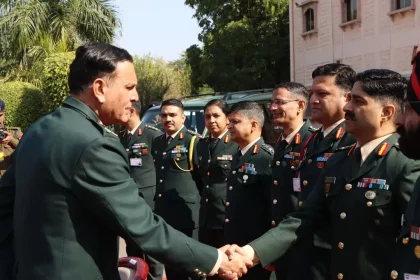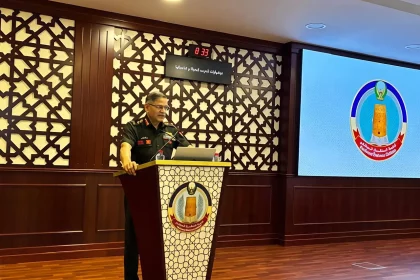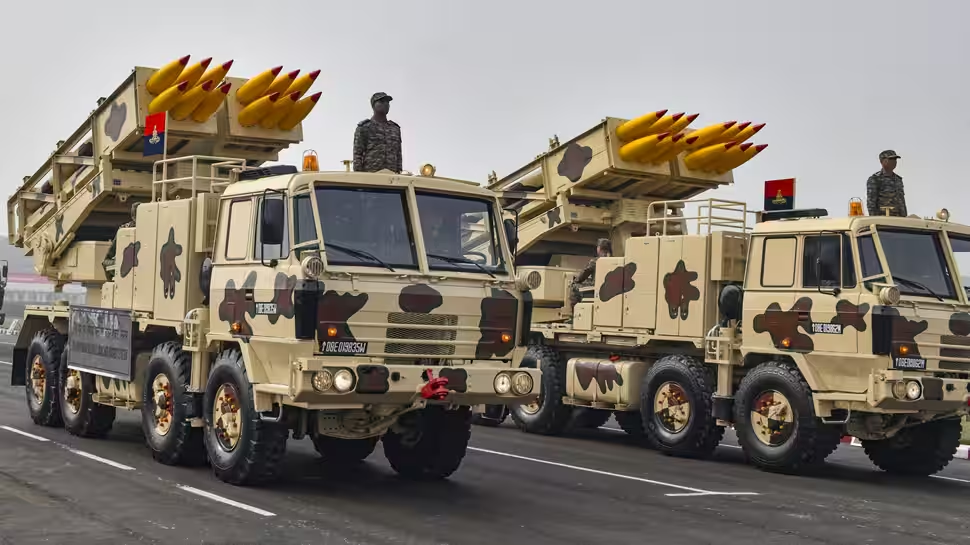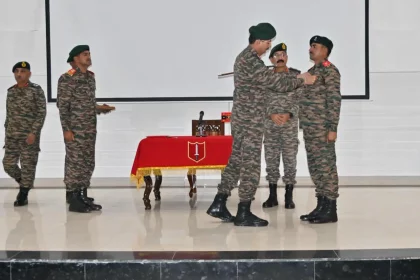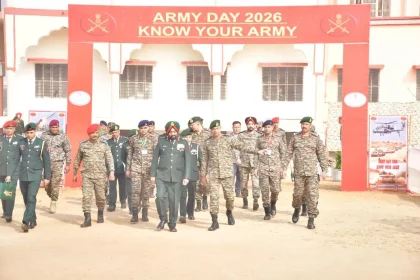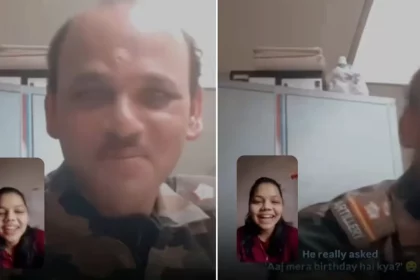Lt Gen Dhiraj Seth Reviews Operational & Administrative Readiness at Konark Corps
Southern Command chief praises Konark Corps for indigenous innovation, drone integration, and robust welfare initiatives enhancing desert operational readiness.
COAS General Upendra Dwivedi Addresses Officers at UAE National Defence College
COAS underscores technology-driven warfare, senior leadership responsibility, and the importance of India–UAE and multilateral defence cooperation for regional stability.
Tata Advanced Systems Secures Indian Army Order to Upgrade Pinaka Weapon System
Order reinforces Pinaka MLRS readiness, boosts indigenous artillery sustainment, and strengthens Army–industry collaboration under Aatmanirbhar Bharat.
Lt Gen Devendra Sharma Reviews Training at Junior Leaders Wing, Belagavi
Army Training Command Chief underscores adaptive leadership, innovation, and technology-driven training to prepare junior leaders for future battlefields.
Lt Gen Manjinder Singh Reviews Preparations for Army Day Parade 2026 in Jaipur
Army Commander inspects key venues, reviews logistics and coordination, and urges all stakeholders to ensure a grand and flawless Army…
Watch: Indian Army Soldier’s Daughter Gently Reminds Him of His Birthday, Melting Hearts Online
A tender reminder of love behind the uniform, highlighting the unseen sacrifices of soldiers and the quiet strength of their…

